News
Rural Acts of Sabotage Challenge Paris Olympics Opening
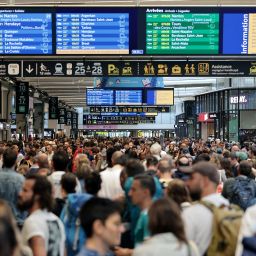
The grand opening of the Paris Olympics faced unexpected challenges as sabotage disrupted key transportation services. In the heart of Paris, streets were cordoned off, metro stations closed, and a significant security presence was established with thousands of police, soldiers, and guards deployed to ensure a smooth beginning to the Olympics. However, the saboteurs targeted rural areas outside the capital, striking at five crucial points.
France’s national rail company, SNCF, reported that saboteurs attacked or attempted to attack five signal boxes and electrical installations between 1:00 and 5:30 AM on Friday. One notable incident occurred at Courtalain, east of Le Mans and 150 km southwest of Paris. Local social media showcased an image of burned cables in a shallow ditch, highlighting the damage. Similar acts of arson and theft targeted cabling at Pagny-sur-Moselle, near Metz in the east, and Croisilles, close to Arras in the north. These were small sites but located at major junctions on the high-speed TGV network.
An additional attempt to sabotage a TGV junction southeast of Paris at Vergigny was thwarted by SNCF workers conducting maintenance during the early hours. This coordinated sabotage resulted in immediate impacts on one of France’s busiest days for its esteemed rail system. SNCF’s head, Jean-Pierre Farandou, described the attack as “premeditated, calculated, and coordinated,” necessitating extensive repairs.
Friday, July 26, marked both the start of the “grand départ” for holidaymakers leaving cities and the highly anticipated opening ceremony of the Paris Olympics, planned meticulously over the years. Hundreds of passengers were left stranded at major Paris rail hubs like Gare Du Nord and Gare Montparnasse, waiting for updates on delayed trains heading not just across France but also to London, Brussels, and Amsterdam. The celebrated high-speed TGV network connecting Paris to Lille, Le Mans, and Strasbourg faced significant disruptions.
To mitigate the situation, SNCF officials at Gare de L’Est planned to reroute high-speed TGV trains onto slower lines, causing delays but ensuring continued operation of the rail network. Transport Minister Patrice Vergriete pointed to the deliberate nature of these fires, noting evidence like abandoned vans and incendiary materials found at the scenes.
Caretaker Prime Minister Gabriel Attal acknowledged the profound and serious repercussions for the rail network and confirmed that France’s intelligence services and law enforcement were mobilized to “find and punish those behind these criminal acts.
News
Starmer Vows to Stand Firm as He Rallies MPs Amid Mounting Political Pressure
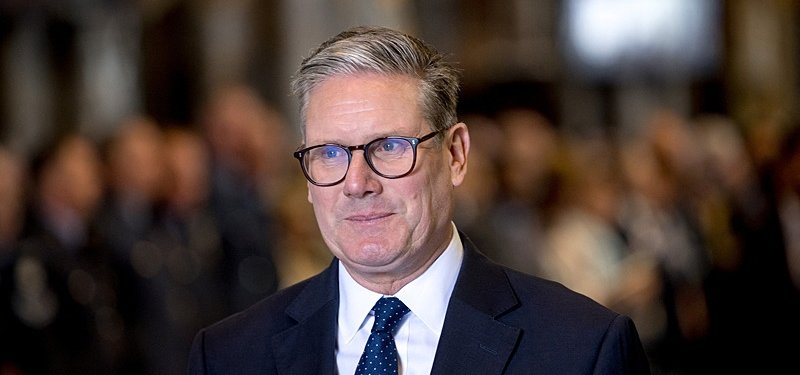
Sir Keir Starmer has delivered a defiant message to Labour MPs, insisting he will not step aside despite growing political pressure, as he framed the challenge from Reform UK as an existential battle for both his party and the country.
Addressing colleagues, the prime minister acknowledged that opposition to his leadership is not new, saying he has faced critics throughout his political journey and continues to do so now. He argued that many of those attacking him are fundamentally opposed to a Labour government in any form, and particularly to one that seeks to deliver lasting change.
“I have had my detractors every step along the way, and I’ve got them now,” Starmer told MPs. “Detractors that don’t want a Labour government at all, and certainly not one to succeed.”
However, he made clear that resignation is not an option, stressing that he feels a deep responsibility to honour the mandate given to him by the electorate. Starmer said walking away would betray voters and risk destabilising the country at a critical moment, drawing a contrast with previous political upheavals that, in his view, led to uncertainty and disorder.
“But I’ll tell you this,” he said. “After having fought so hard for the chance to change our country, I’m not prepared to walk away from my mandate and my responsibility to my country, or to plunge us into chaos, as others have done.”
The Labour leader described the rise of Reform UK as the most serious political challenge of his career, characterising it in dramatic terms as a defining struggle for the future direction of Britain. He warned that the contest is not just about party politics, but about the values that underpin the country.
He labelled the confrontation with Reform UK as “the fight of our lives, the fight of our times,” urging MPs to recognise the scale of what is at stake and to remain united in the face of growing pressure.
Starmer concluded his remarks with a highly personal and emotional pledge, underlining his commitment to continue leading and fighting for what he believes in. He said his resolve would not waver and called on Labour MPs to see the battle as a shared one, rooted in protecting the country’s future.
“I’ll tell you this, as long as I have breath in my body, I’ll be in that fight, on behalf of the country that I love and I believe in, against those that want to tear it up,” he said.
“That is my fight, that is all of our fight, and we’re in this together.”
News
Iranian Nobel Laureate Faces New Sentence as Support and Global Scrutiny Intensify
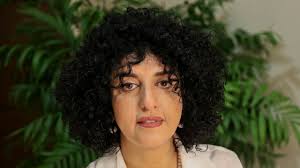
Iranian Nobel Peace Prize laureate and human rights activist Narges Mohammadi has been handed additional prison sentences totalling seven-and-a-half years, according to her lawyer, in a development that has drawn renewed international attention to her case and the broader human rights situation in Iran.
Mohammadi, 53, was sentenced by a court in the north-eastern city of Mashhad to six years in prison for what authorities described as “gathering and collusion,” and a further one-and-a-half years for “propaganda activities,” her lawyer, Mostafa Nili, said in a statement posted on social media on Sunday. The ruling also includes a two-year travel ban and two years of internal exile to the eastern region of Khusf.
The latest sentences follow Mohammadi’s arrest in December, when Iranian authorities accused her of making “provocative remarks” during a memorial ceremony. Her family has said she was beaten during the arrest and later taken to hospital. The activist has since been returned to detention, despite concerns over her health.
Nili, who said he spoke to Mohammadi for the first time since 14 December, reported that she had been hospitalised three days ago because of her “poor physical condition” before being transferred back to the detention centre where she is currently being held. He added that their phone call was abruptly cut off while she was describing the circumstances of her detention.
The Narges Foundation, which supports Mohammadi and campaigns on her behalf, described the court hearing on Saturday as a “sham” and said she began a hunger strike on 2 February in protest against her treatment. The foundation has repeatedly warned that her health is fragile after years of imprisonment and medical neglect.
Mohammadi’s husband, Taghi Rahmani, said she refused to mount a defence in court, explaining that she does not recognise the legitimacy of the judicial process she faces. He said she attended the hearing in silence, did not speak, and did not sign any documents, describing the proceedings as “a mere charade with a pre-determined end.
Her daughter, Kiana Rahmani, said she was “gravely concerned” about her mother’s physical and mental wellbeing, echoing fears expressed by rights groups and supporters around the world.
Mohammadi has already spent more than a decade of her life behind bars. According to the Narges Foundation, the latest ruling brings the total length of prison time she has been sentenced to over the years to 44 years. Since 2021, she has been serving a 13-year sentence on charges of “propaganda against the state” and “collusion against state security,” accusations she has consistently denied.
Despite her imprisonment, Mohammadi was awarded the Nobel Peace Prize in 2023 in recognition of her long-standing activism against the oppression of women in Iran and her advocacy for human rights. Supporters say the honour has given her case unprecedented international visibility, even as legal pressure against her continues to mount.
She was granted a temporary medical release from Tehran’s Evin prison for three weeks in December 2024, raising hopes among her family and supporters that her health needs might finally be prioritised. However, she was expected to return to prison soon after, where she has been serving multiple overlapping sentences.
Her most recent arrest occurred while she was attending a memorial for Khosrow Alikordi, a lawyer who was found dead in his office in early December. Norway-based organisation Iran Human Rights has called for an independent inquiry into his death, describing the circumstances as “suspicious.”
The Narges Foundation previously said eyewitnesses at the memorial saw Mohammadi being attacked by around 15 plainclothes agents, alleging that some pulled her hair and beat her with batons and clubs. Mashhad prosecutor Hasan Hematifar said Mohammadi was among 39 people arrested and claimed that she and Alikordi’s brother had encouraged participants to chant “norm-breaking slogans” and disturb public order.
News
Russia Identifies Suspects in Shooting of Senior General
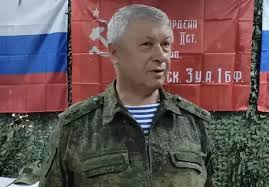
Russian authorities say they have identified three suspects in connection with the shooting of a senior military intelligence official, Lt Gen Vladimir Alexeyev, as investigators push ahead with what they describe as a rapid and coordinated response to the high-profile attack.
The Russian Investigations Committee (SK) said the alleged gunman has been named as Lyubomir Korba, a Ukrainian-born Russian citizen. According to investigators, Korba arrived in Moscow in late December on what they claim was an assignment from Ukrainian intelligence services to carry out what they have described as a “terrorist attack.” Ukrainian officials have reportedly denied any involvement in the incident.
Lt Gen Alexeyev, 64, who serves as the deputy head of the GRU, Russia’s military intelligence agency, was shot on Friday in a residential apartment block in the north-western outskirts of Moscow. Russian media reports say he was taken to hospital in a serious condition but has since regained consciousness following surgery, a development that officials and commentators have highlighted as an encouraging sign.
The SK’s spokeswoman, Svetlana Petrenko, said investigators believe the attacker fired three shots before fleeing the scene. Korba is alleged to have travelled to the United Arab Emirates within hours of the shooting, where he was later detained. Russian authorities say he has since been extradited back to Russia, underlining what they describe as effective international cooperation.
Russian state television channel Ru-24 broadcast footage showing security agents escorting Korba from an aircraft at an undisclosed location, as officials sought to demonstrate progress in the case. Petrenko said forensic teams carried out a detailed examination of the crime scene, during which they recovered the alleged weapon — a Makarov pistol fitted with a silencer, along with three rounds of ammunition. She added that forensic tests are now being conducted on the firearm.
According to the Investigations Committee, Korba did not act alone. A second suspect, Viktor Vasin, has been arrested in Moscow and formally charged in connection with the attack. Authorities also believe a third person, identified as Zinaida Serebritskaya, may have been involved. She is reported to have left Russia for Ukraine, although investigators have not publicly detailed the nature of her alleged role.
The case has drawn attention at the highest levels of government. Russian media, citing Kremlin spokesman Dmitry Peskov, reported that President Vladimir Putin personally thanked UAE President Sheikh Mohamed bin Zayed Al Nahyan on Saturday for his country’s assistance in detaining and extraditing Korba. The gesture was portrayed as a sign of strengthening security cooperation between Moscow and Abu Dhabi.
Lt Gen Alexeyev is the latest in a series of senior Russian military figures to be targeted in or near Moscow since the start of Russia’s full-scale invasion of Ukraine in February 2022. Ukraine has, in the past, publicly acknowledged responsibility for some attacks on Russian military officials, while in other cases it has remained silent or denied involvement.
In a separate recent incident, Russian intelligence officials said they thwarted an attempted attack on a Russian soldier in St Petersburg late last month. Earlier this year, an Uzbek man was sentenced to prison for the 2024 killing of another senior officer, Lt Gen Igor Kirillov, who died in an explosion outside an apartment block in Moscow. At the time, sources within Ukraine’s SBU intelligence service claimed responsibility for that attack.
-
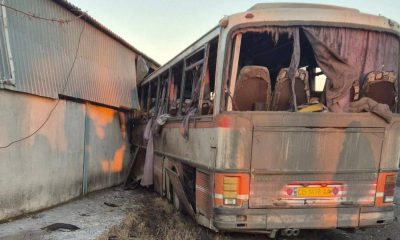
 News1 week ago
News1 week agoUkrainian Community Mourns Miners Killed in Strike as Rescue Efforts and International Condemnation Grow
-
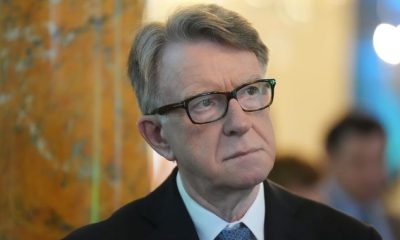
 News1 week ago
News1 week agoOpposition Demands Inquiry as Mandelson Steps Away from Labour Amid Epstein Document Fallout
-
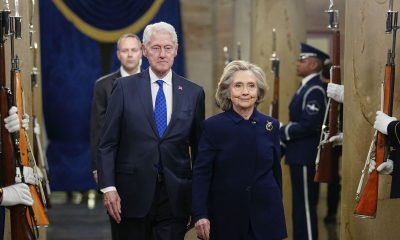
 News1 week ago
News1 week agoClintons Agree to Testify in Epstein Probe as Congress Pauses Contempt Push
-

 Business1 week ago
Business1 week agoChina bans hidden car door handles over safety concerns
-
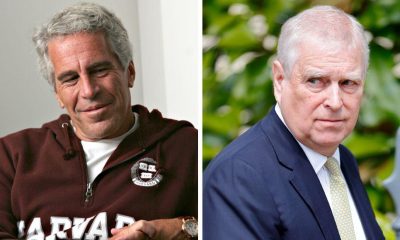
 News6 days ago
News6 days agoAndrew and Epstein asked exotic dancer for ‘sex acts,’ legal letter claims
-
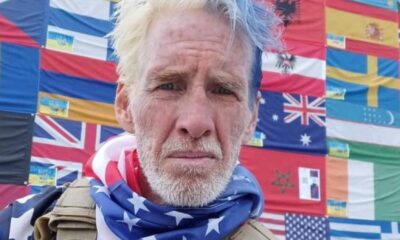
 News6 days ago
News6 days agoLife Sentence Brings Closure After 2024 Attempt on Trump’s Life
-

 News2 days ago
News2 days agoRussia Identifies Suspects in Shooting of Senior General
-

 News2 days ago
News2 days agoThai PM claims election victory as Conservatives Take Commanding Lead






















